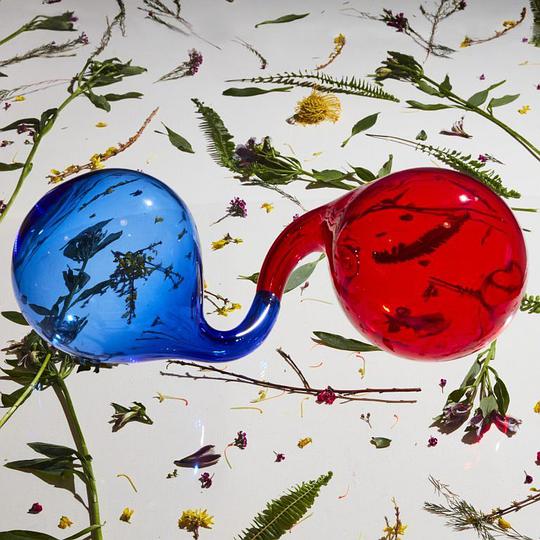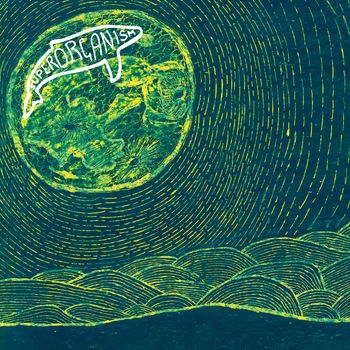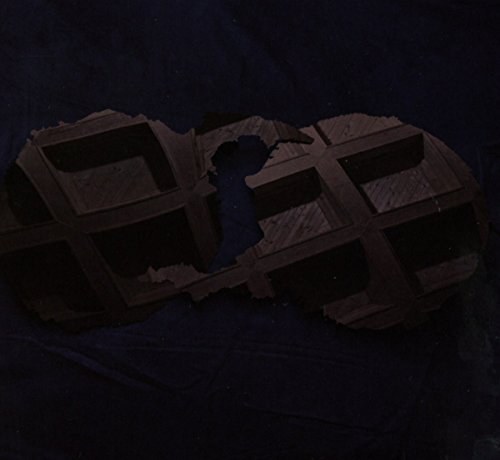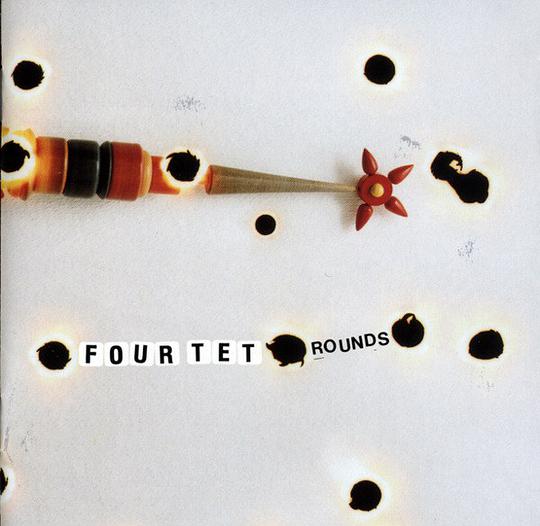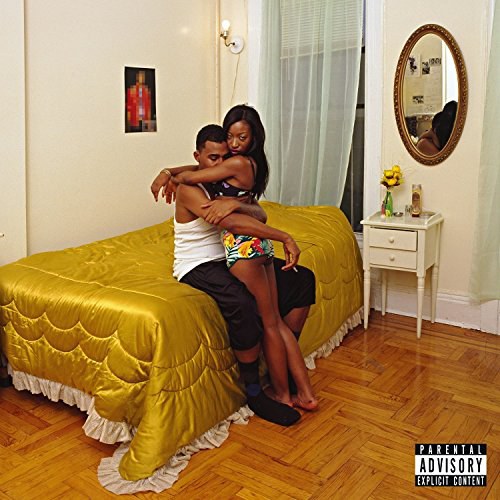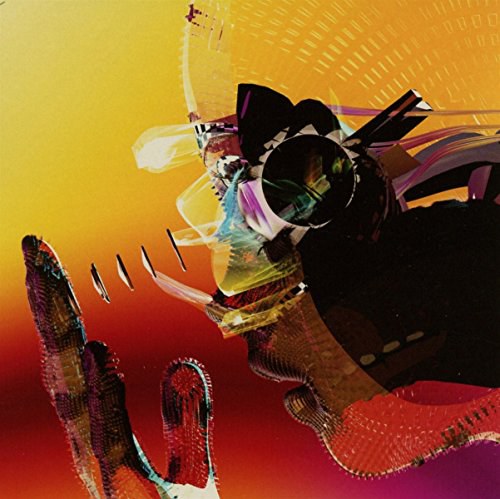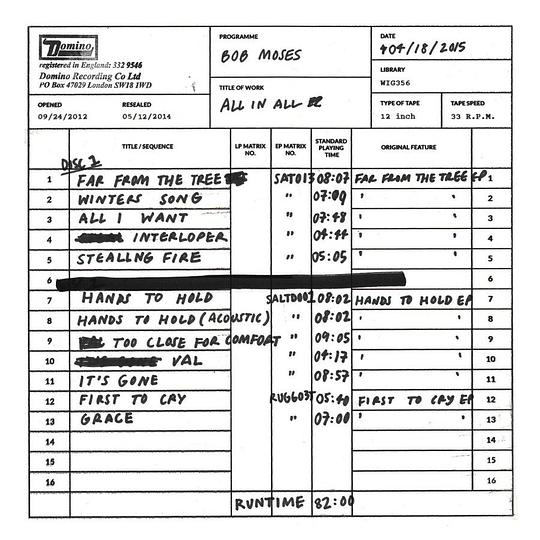Domino
Lamp Lit Prose 豆瓣
7.7 (13 个评分)
Dirty Projectors
类型:
摇滚
发布日期 2018年7月13日
出版发行:
Domino Records (Goodtogo)
The eighth full-length release for David Longstreth project features guest appearanmces from Dear Nora, Empress Of, Haim, Amber Mark, Fleet Foxes' Robin Pecknold, Rostam, and Syd of The Internet.
Superorganism 豆瓣 Spotify Discogs
8.1 (35 个评分)
Superorganism
类型:
流行
发布日期 2018年3月2日
出版发行:
Domino
Composed of eight international artists recruited from all over the globe, London-based cooperative Superorganism made waves with 2017’s woozily addictive hit “Something for Your M.I.N.D”. For their debut the octet lift city sounds and place them centre stage—expect revving engines, arcade clatters and fizzing soda cans. It’s a hybrid of laidback dream-pop (“Reflections on the Screen”) and sunshine-soaked psychedelic jams (“Everybody Wants to Be Famous”) that radiates pure joy. These weird and wonderful anthems are ready to transport you to summer, whatever the weather.
Dirty Projectors 豆瓣
8.3 (7 个评分)
Dirty Projectors
类型:
电子
发布日期 2017年2月22日
出版发行:
Domino Recording Co.
Dirty Projectors announce their long-awaited 7th LP. The new album does everything we want and expect from Dirty Projectors — but in a way we never could have imagined or anticipated. In a career of surprising conceptual gambits, unexpected stylistic evolutions, and continually changing lineups — this is, as DJ Khaled says, “ANOTHER ONE”! Dirty Projectors will be out February 24th, 2017 on Domino.
Rounds 豆瓣
8.9 (28 个评分)
Four Tet
类型:
电子
发布日期 2003年1月1日
出版发行:
Domino
Four Tet is Kieran Hebden, and he has released eight albums between his solo Four Tet work and band efforts as Fridge. Rounds is a beautiful montage of shuffling percussion, piano, guitar and folktronic excursions. 10 tracks. Domino. 2003.
Freetown Sound 豆瓣
9.0 (49 个评分)
Blood Orange
类型:
放克/灵歌/R&B
发布日期 2016年6月28日
出版发行:
Domino Records
Freetown Sound is the third album from Devonté Hynes aka Blood Orange. Written and produced by Hynes, Freetown Sound is a tour de force, a pastiche of Hynes’ past, present, and future that melds his influences with his own established musical voice.
For well over a decade, Devonté Hynes has proven himself a virtuoso of versatility, experimenting with almost every conceivable musical genre under a variety of monikers. After moving to New York City in the mid-2000s, Hynes became Blood Orange, plumming the oeuvres of the city’s musical legends to create a singular style of urgent, delicate pop music. Freetown Sound, which follows 2011’s Coastal Grooves and 2013’s breakthrough Cupid Deluxe, builds upon everything Hynes has done as an artist, resulting in the most expansive artistic statement of his career. Drawing from a deep well of techniques and references, the album unspools like a piece of theater, evoking unexpected communions of moods, voices, and eras. Freetown Sound derives its name from the birthplace of Hynes’ father, the capital of Sierra Leone. Thematically, it is profoundly personal and unapologetically political, touching on issues of race, religion, sex, and sexism over 17 shimmering songs.
For well over a decade, Devonté Hynes has proven himself a virtuoso of versatility, experimenting with almost every conceivable musical genre under a variety of monikers. After moving to New York City in the mid-2000s, Hynes became Blood Orange, plumming the oeuvres of the city’s musical legends to create a singular style of urgent, delicate pop music. Freetown Sound, which follows 2011’s Coastal Grooves and 2013’s breakthrough Cupid Deluxe, builds upon everything Hynes has done as an artist, resulting in the most expansive artistic statement of his career. Drawing from a deep well of techniques and references, the album unspools like a piece of theater, evoking unexpected communions of moods, voices, and eras. Freetown Sound derives its name from the birthplace of Hynes’ father, the capital of Sierra Leone. Thematically, it is profoundly personal and unapologetically political, touching on issues of race, religion, sex, and sexism over 17 shimmering songs.
Motion Graphics 豆瓣
8.0 (5 个评分)
Motion Graphics
类型:
电子
发布日期 2016年8月26日
出版发行:
Domino
总而言之 豆瓣
8.8 (5 个评分)
Bob Moses
类型:
电子
发布日期 2015年4月20日
出版发行:
Domino Records
“We were never happy just making music on acoustic guitars,” says Tom Howie of the organic-electronic sound of Bob Moses, the Brooklyn-by-way-of-Canada duo he formed with partner Jimmy Vallance. “Our live show combines what a DJ does with a rock band,” Vallance adds. “Everything flows together in a continuous mix for the dancefloor, but it’s all our own original music, with live vocals and guitar. Then again, we came out of a scene that was trying to change what dance music is – that pushed beyond the expected sonic spectrum.”
That scene grew around the Marcy Hotel – the revered venue that, in its half decade of existence, proved as important for New York’s contemporary underground dance/electronic music world as CBGBs was for the ‘70s punk era. The acclaimed likes of Soul Clap, Wolf + Lamb, and Nicolas Jaar all gravitated around Marcy’s infamous parties, reimagining dance music in their own groundbreaking image. “We were totally inspired by what was happening at the Marcy. It was a small room, could only hold a couple hundred people tops, but it proved to be such a pivotal place,” Vallance says. “Alongside what other promoters like Resolute and Blackmarket were doing in abandoned warehouses in Brooklyn, New York was an inspiring place to be at the turn of the decade.” Also present was Francis Harris, the iconoclastic DJ/producer and co-founder of tastemaker label Scissor & Thread, which fostered a more personal, homemade take on electronic sounds. After meeting at a studio session for techno mavericks M.A.N.D.Y., Harris, Howie, and Vallance found they shared common ground. “Francis set the road map for the sound we needed to find,” Howie says.
Howie and Vallance started writing hooks for Harris’ Frank & Tony project, furthering their collaboration. “We didn’t think much of it until we played Marcy with Frank & Tony in 2012,” Vallance recalls. “Tom sang live to the tracks we’d written, and people went insane! We’d never expected that reaction, which made us think we were on to something,” Howie says. “We woke up the next day thinking ‘We have to become our own act.’ We came up with the songs for our first EP, Hands to Hold, and Francis agreed to put it out.”
Hands to Hold’s infectious title track appeared in two vastly different versions: an electronic mix that combined subtle grooves and tweaked sound design with Howie’s moody vocals, and a drumless acoustic take. Bob Moses upped the anti-genre ante on its next EP, 2013’s Far From the Tree: one track, “Interloper,” was the kind of dark, fractured 4/4 instrumental one might hear at 5:00am on a Berlin dancefloor, while “Stealing Fire” proved a psychedelic downtempo confessional with eerily catchy vocal melodies; the title song, meanwhile, split the difference between those styles. “Out the gate, we wanted to make clear we weren’t just a dance act,” Vallance says.
Bob Moses received its oddball moniker from Francis Harris in homage to Robert Moses, the urban planner behind iconic New York landmarks like Shea Stadium and the Brooklyn-Queens Expressway. But while NYC is definitely in Bob Moses’ DNA, its members actually met as high school students in Vancouver, Canada. The pair reunited randomly years later when, bumping into each other in a Lowe’s parking lot, they discovered they had studios across the street from each other in Brooklyn’s Red Hook neighborhood. Howie had arrived there after a stint at Boston’s Berklee College of Music, on a partial scholarship as a singer-songwriter. Vallance, meanwhile, had found some success as a producer/engineer/DJ creating commercial dance music – his remix of Sia’s “Buttons” brought him some early attention – but “I’d fallen out of love with making cheesy big-room tracks,” he laughs. “We booked a couple days to write at my studio for fun, and by the end of the week, I told Tom, ‘Come live at my place and let’s do this every day.’”
After signing to their new label Domino, Bob Moses released a third EP, First to Cry. Taking its title from Bob Moses’ blues-meets-deep-house take on “I Ain’t Gonna Be the First to Cry” by R&B legend Bobby ‘Blue’ Bland, it marks Bob Moses as a characteristic addition to Domino’s maverick stable. “We’re massive fans of Domino artists like Four Tet, Caribou, Hot Chip, and Animal Collective, so it just seemed like a natural home for us,” Vallance says. “We feel lucky to be starting this relationship – it’s a big new world.”
That scene grew around the Marcy Hotel – the revered venue that, in its half decade of existence, proved as important for New York’s contemporary underground dance/electronic music world as CBGBs was for the ‘70s punk era. The acclaimed likes of Soul Clap, Wolf + Lamb, and Nicolas Jaar all gravitated around Marcy’s infamous parties, reimagining dance music in their own groundbreaking image. “We were totally inspired by what was happening at the Marcy. It was a small room, could only hold a couple hundred people tops, but it proved to be such a pivotal place,” Vallance says. “Alongside what other promoters like Resolute and Blackmarket were doing in abandoned warehouses in Brooklyn, New York was an inspiring place to be at the turn of the decade.” Also present was Francis Harris, the iconoclastic DJ/producer and co-founder of tastemaker label Scissor & Thread, which fostered a more personal, homemade take on electronic sounds. After meeting at a studio session for techno mavericks M.A.N.D.Y., Harris, Howie, and Vallance found they shared common ground. “Francis set the road map for the sound we needed to find,” Howie says.
Howie and Vallance started writing hooks for Harris’ Frank & Tony project, furthering their collaboration. “We didn’t think much of it until we played Marcy with Frank & Tony in 2012,” Vallance recalls. “Tom sang live to the tracks we’d written, and people went insane! We’d never expected that reaction, which made us think we were on to something,” Howie says. “We woke up the next day thinking ‘We have to become our own act.’ We came up with the songs for our first EP, Hands to Hold, and Francis agreed to put it out.”
Hands to Hold’s infectious title track appeared in two vastly different versions: an electronic mix that combined subtle grooves and tweaked sound design with Howie’s moody vocals, and a drumless acoustic take. Bob Moses upped the anti-genre ante on its next EP, 2013’s Far From the Tree: one track, “Interloper,” was the kind of dark, fractured 4/4 instrumental one might hear at 5:00am on a Berlin dancefloor, while “Stealing Fire” proved a psychedelic downtempo confessional with eerily catchy vocal melodies; the title song, meanwhile, split the difference between those styles. “Out the gate, we wanted to make clear we weren’t just a dance act,” Vallance says.
Bob Moses received its oddball moniker from Francis Harris in homage to Robert Moses, the urban planner behind iconic New York landmarks like Shea Stadium and the Brooklyn-Queens Expressway. But while NYC is definitely in Bob Moses’ DNA, its members actually met as high school students in Vancouver, Canada. The pair reunited randomly years later when, bumping into each other in a Lowe’s parking lot, they discovered they had studios across the street from each other in Brooklyn’s Red Hook neighborhood. Howie had arrived there after a stint at Boston’s Berklee College of Music, on a partial scholarship as a singer-songwriter. Vallance, meanwhile, had found some success as a producer/engineer/DJ creating commercial dance music – his remix of Sia’s “Buttons” brought him some early attention – but “I’d fallen out of love with making cheesy big-room tracks,” he laughs. “We booked a couple days to write at my studio for fun, and by the end of the week, I told Tom, ‘Come live at my place and let’s do this every day.’”
After signing to their new label Domino, Bob Moses released a third EP, First to Cry. Taking its title from Bob Moses’ blues-meets-deep-house take on “I Ain’t Gonna Be the First to Cry” by R&B legend Bobby ‘Blue’ Bland, it marks Bob Moses as a characteristic addition to Domino’s maverick stable. “We’re massive fans of Domino artists like Four Tet, Caribou, Hot Chip, and Animal Collective, so it just seemed like a natural home for us,” Vallance says. “We feel lucky to be starting this relationship – it’s a big new world.”

